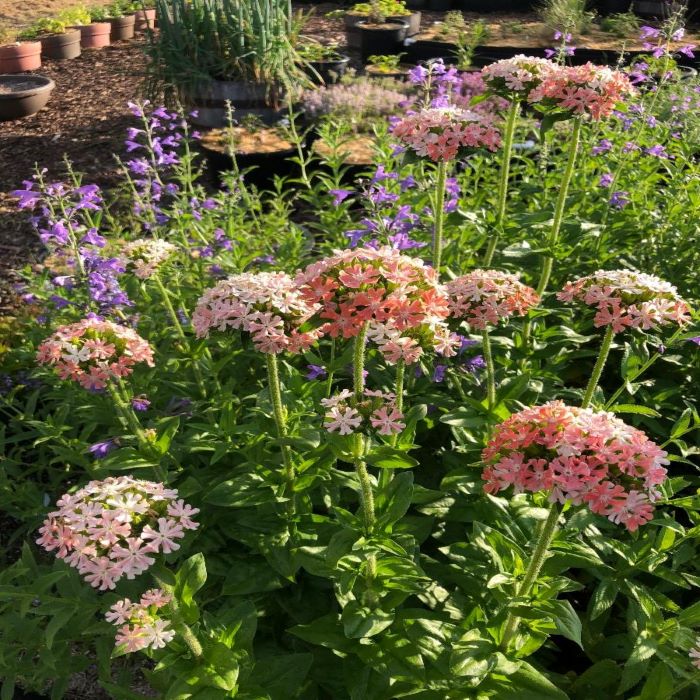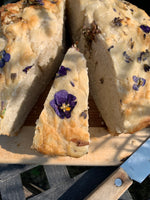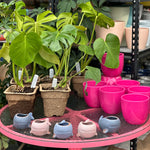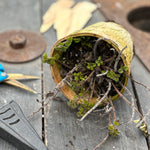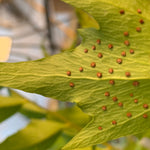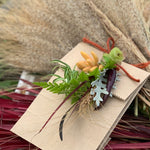Let's face it, the adage that the best way to succeed in the garden is to spend time in the garden will always hold true. However, there are many ways to both attend to your plants while also enjoying the rest that summer has to offer. This week we are going to cover some easy strategies to keep the garden growing beautifully, while also freeing you up to worry less about your plants and engage more with everything else you want to do
Right plant, right place = fundamentals
Since it is still early in the season, there is some opportunity to ensure plants are matched to their fundamental needs. This sounds obvious, but "right plant" and "right place" includes considerations such as your particular plants being situated in the correct exposure (full sun equals 6 - 8 hours of direct light), with adequate drainage (especially for pots), and with enough room to flourish. Attending to these fundamental details now will allow your plants to be much stronger and therefore less needy - letting you get on with other summer priorities.
If you need to reorganize any plants, dig them up with as much root ball as possible, water really well after moving them and consider trimming off any flowers or stem tips as they settle into their new locations. Pots, of course, can be moved easily; sometimes just a little micro-tuning will help tremendously.
Schedule small chores
I have to admit I do not like having to stick to a schedule, yet have come to appreciate the great benefits of creating reminders or tracking the fundamentals of keeping plants growing well. If you are like me, it can be easy to lose track of the last time I fertilized my plants or even watered them (sometimes!). There is so much other stuff to do during the day, week, month... that these obvious chores can go longer than ideal without being completed, making it a much larger chore when I have to "fix" plants back up. These days, digital calendar reminders are such ubiquitous tools that it only makes sense to "schedule in" the most important gardening tasks, so you know they are attended to (therfore not bogging you down) and you can also fit them around your other summer fun.
The most important things to schedule and track are watering (for this one, it might be a daily task, for example making it a little ritual to check on watering each day after work, or after dinner etc), *fertilizing (follow package instructions; often weekly in summer for plant foods that get mix with water), dead-heading (cutting off old flowers or pinching stem tips on herbs on a regular basis) and weeding (see next section for more details).
*If you are the kind of gardener who prefers a "once and done approach", look out for organic slow-release options such as the Evolve granular plant foods or Jobe's organic spikes.
Weed just a little each day or two
It is guaranteed your time at the lake will be more relaxing if you are not stressing about giant weeds taking over your garden! But, it is also amazing how well weeds can be controlled if you can spend just a few minutes each day or two tackling them.
With all of the moisture this season weeds have been fast-growing, so this strategy is perhaps more important than ever. When weeding, focus on weeds that are going to flower/seed and be sure to dig up the whole plant - roots and all - so as to avoid prompt regrowth. Weeding is also a lot more enjoyable in the morning or evening when it is cooler, and I love basking in the gorgeous light at these times of the day (although the beauty of everything can be distracting from the task at hand, and I just want to take garden photos!)
Mulch... a lot!
Laying down organic mulches is one of the most effective ways to keep weeds down and soil moisture stable, dramatically reducing your summer workload. Our favourite mulch is the certified organic Garden Straw, which is made from very clean organic wheat straw; this mulch has the advantages of creating good coverage while also being light, it has most seeds, dust and mould removed, and it breaks down easily at the end of the season (improving your soil).
Other excellent mulch materials include leaf litter (shredded leaves), shredded paper and decorative options like the colourful enviro mulch (made from vegetable-dyed shredded pallets). Poor choices for mulch are flax straw (too heavy and full of seeds), (any form of hay (includes many seeds), and rock (makes the garden high maintenance).
I go ahead and mulch everywhere, including planters; this can reduce the need to water by up to 50%!
Mulches need to be 1 - 3 inches in depth to be effective.
Use natural slow-release materials to manage moisture
Container gardens, in particular, can be a source of stress when you are trying to relax during your summer holidays, seemingly drying out as quickly as you can water them!
Of course, planting in larger containers and tucking pots away from (especially) the afternoon heat will help a lot... but here are two secret weapons: compost and wool pellets. Both of these materials are excellent at holding water and slow-releasing this moisture back out over time, and both will help prevent the over-drying that causes potting mixes to lose the ability to hold water altogether. In addition, both compost and wool pellets provide top-notch slow-release organic nutrients to your plants across the entire summer.
We add a minimum 20% compost to all soil mixes, and for the wool pellets, a little goes a long way. These solutions are far better than the starch-based options that become like alien jelly in your soil each time it rains!
Away for a week or longer? Trim, trim, trim!
Most container-grown plants, and especially annual flowers like petunias, benefit from regular shearing to keep them looking stunning. If you know you'll be away from your plants for a little bit of a longer period, go ahead and give them a BIG haircut before you go (possibly even cutting back all flowers on petunias)! You'll be amazed at how recharged and full your plants will look once you are back. Even if you are not going away for a stretch, you could choose a week in mid to late July and shear plants back... it's hard to do, but, wow, it really pays off!
Aside from petunias, flowers like snapdragons, marigolds, alyssum, coleus, torenia, ageratum and pansies/violas, plus leafy herbs such as basil, oregano, parsley, sorrel, savory and more all benefit from this. Garden perennials can also be given a good mid-summer trimming. Fruiting plants and veggies are not typically cut back at any point in the summer, once established.

(pictured above: Giant Catmint on our June garden)
Hope these ideas can help streamline and facilitate your gardening efforts this summer, so you can have more time to simply sit back and enjoy!

